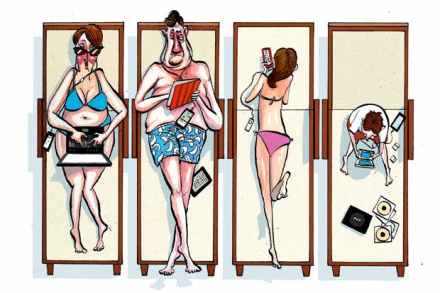High life | 25 April 2019
David Niven’s younger son Jamie, now an old man and a bit overweight, approached my table and announced that he had seen a video of me lunching elsewhere with two friends. He said this in front of the two ladies I was with, one of whom has in the past had issues with my behaviour — namely, the wife. Luckily the video showed me with the designer Carolina Herrera and her husband, who are social friends, so after a pregnant pause Jamie Niven said goodbye and left. It was the end of the story and for once I was doing something innocent, like having lunch. Thinking back, however, I am




















